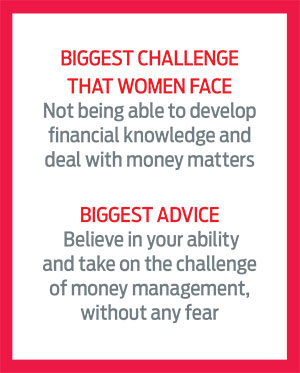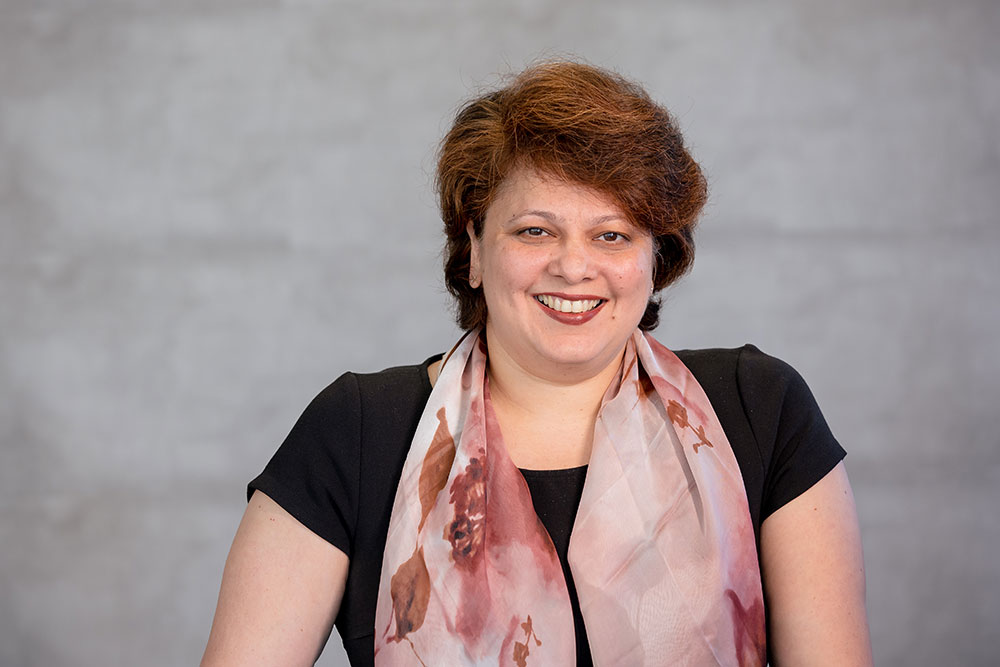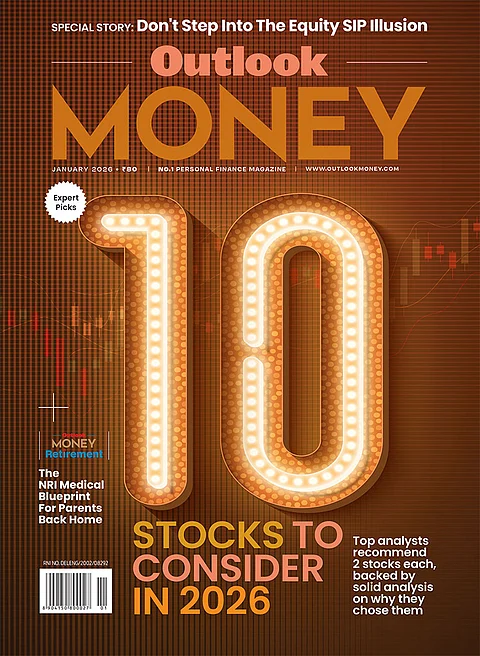Mrin Agarwal | Age 48 | Founder, Finsafe India Private Limited
Assets under advice Not applicable, as she is now into financial education
Practising since 1996
***
As a financial advisor, Mrin Agarwal, founder, Finsafe India, made it a point to meet the spouses of her clients, most of whom happened to be men. Once when Agarwal went to meet the wife of one such client separately, her first reaction was: “I was really scared of meeting you. I wasn’t sure what would I be talking to you about.”
That reaction encapsulates the level of discomfort women have with finances, even when it comes to their own families.
“I used to make it a point to meet the women separately and build a relationship with them to make them comfortable and involve them in the process. Slowly they would start coming to the meetings and participating in the discussions,” says Agarwal, who has since moved away from the advisory role to become a financial educator.
After spending more than 25 years in the financial industry in different roles, Agarwal believes that advisors have a huge role to play in making women a part of the conversation. Another factor that can make a material difference in how women perceive their role in the family’s finances comes from the home set-up, she says.
“Children emulate their parents in all walks of life. Therefore, the equation at home can help inculcate certain habits that can go a long way,” she says.
Agarwal learnt this first hand. While growing up, she saw her mother managing the long-term finances of the family. “In most families, mothers usually manage the everyday budgeting, but in my family, it was my mother who used to make all the investing decisions in the household.”
A Free Hand
Agarwal considers herself among the lucky ones who never faced any gender bias either within her family or in her professional interactions.
In fact, she found support in her family. “My father believed in women empowerment and he actually proved it by letting me do whatever I wanted. He never believed in labels like ‘women don’t understand finances’ and the like. Never did my parents ever put restrictions like ‘don’t do this or that’,” says Agarwal.
She became a part of the financial services industry at a time when few women entered the field or did so with a lot of trepidation. “It was in the late ’90s that a lot of changes took place on the investment side—whether it was in mutual funds or the insurance industry—and I am glad I was a part of it.”
Agarwal moved from distribution to becoming a relationship manager to private banking, while working with top corporates in India. “In the process, I interacted with a wide range of people. I learnt how to build relationships, had a chance to deep dive into various products, and also handled several high net-worth individuals (HNIs). It was really my stepping stone to wealth management,” she says.
After these stints, she decided to open her own multi-family office. “I initially started with only five clients, but I was handling a large sum in terms of assets. This was also the phase when I became among the first few people who started talking about the idea of fee-based advice versus commissions from products.”
Eventually, she came to a point where she started thinking about how to add value to the financial ecosystem. She initially designed something “by women and for women”; her team comprises only women.
Over time, she realised that financial literacy, in general, is extremely low and there was a lot of work to be done in that area. She set up her company Finsafe in 2015 and now works with corporate employees across industries.
“At that time, people didn’t think something like that would work. Financial educators didn’t exist in India then. Also, people believe they know everything about making money. Corporates were also not willing to pay. I am proud to say that we were among those who brought the concept of financial wellness, and we had no vested interest in terms of commissions or other forms of payment,” she says.
Incidentally, never in her interactions with clients or the distribution community or her colleagues did she face any gender bias. “I am lucky that I always got a conducive environment across the three companies I worked with. Even with my clients, most of whom were HNIs and men, I never faced problem,” she says.
Pockets Of Bias
When it comes to women and bias, the latter still finds a way to creep in.
“Though I never faced any bias when it came to people I interacted with, there are a lot of biases that people attach to successful women. A lot of men still find it very difficult to accept successful women,” she says.

Women still have to work harder than men to prove themselves. Agarwal says she never got the support she expected for her initiative. “I feel if it was a man who had started this financial literacy initiative, probably there would have been more support. When women do something new, it is viewed as something that she has taken up for ‘time-pass’. For instance, my initiative was dismissed as some ‘NGO-type work’,” says Agarwal, who feels she was not taken as seriously as she should have been when she started Finsafe.
Even when she set up the multi-family office before her financial literacy initiative, she came across some dismissive comments. “People just assumed that I had done it because I was taking a break to raise children. Everybody pins the efforts down and links it to family responsibility,” says Agarwal, adding that what’s the harm if women are able to balance family with work.
The Way Ahead
Today more and more women are becoming economically independent but there’s still a long way to go in terms of financial empowerment. “Unfortunately, they confuse that with financial independence. Getting a salary doesn’t make you financially independent,” says Agarwal.
She thinks most women, including the younger ones, are still not savvy.
“To be honest, the percentage change (in the number of women becoming savvy over the years) is very small. It takes a while to change habits, and the needle moves very slowly. I feel the change in mindset will only happen when something big happens. When (actor) Deepika Padukone spoke about mental health, everyone woke up to the need. We need that aha moment in financial wellness, too. Unless some big celebrity starts talking about it, we won’t see a change happening,” says Agarwal.
Women have the ability to take care of their money, yet they do not want to take it up, and that disappoints her.
So what’s her advice?
“I think the first thing to understand is that economic independence and financial independence are not the same. Second, I would tell them not to give up work due to family responsibilities. I know it’s difficult, but they need to do a balancing act. That’s because it’s only through an independent salary or income can they hope to build wealth for themselves. Third, get involved and take your own financial decisions.”
Perhaps, women can take the first step by showing more interest in household finances and not be scared by it.
nidhi@outlookindia.com







